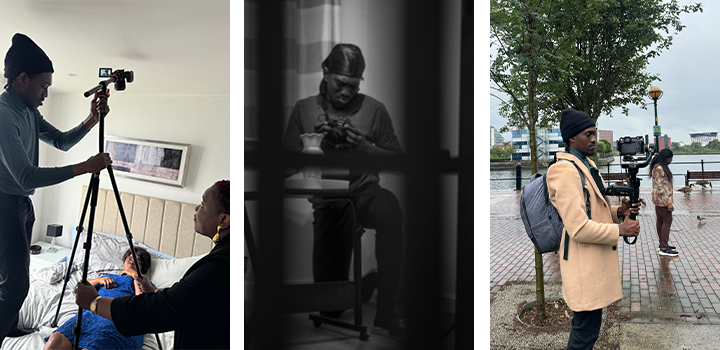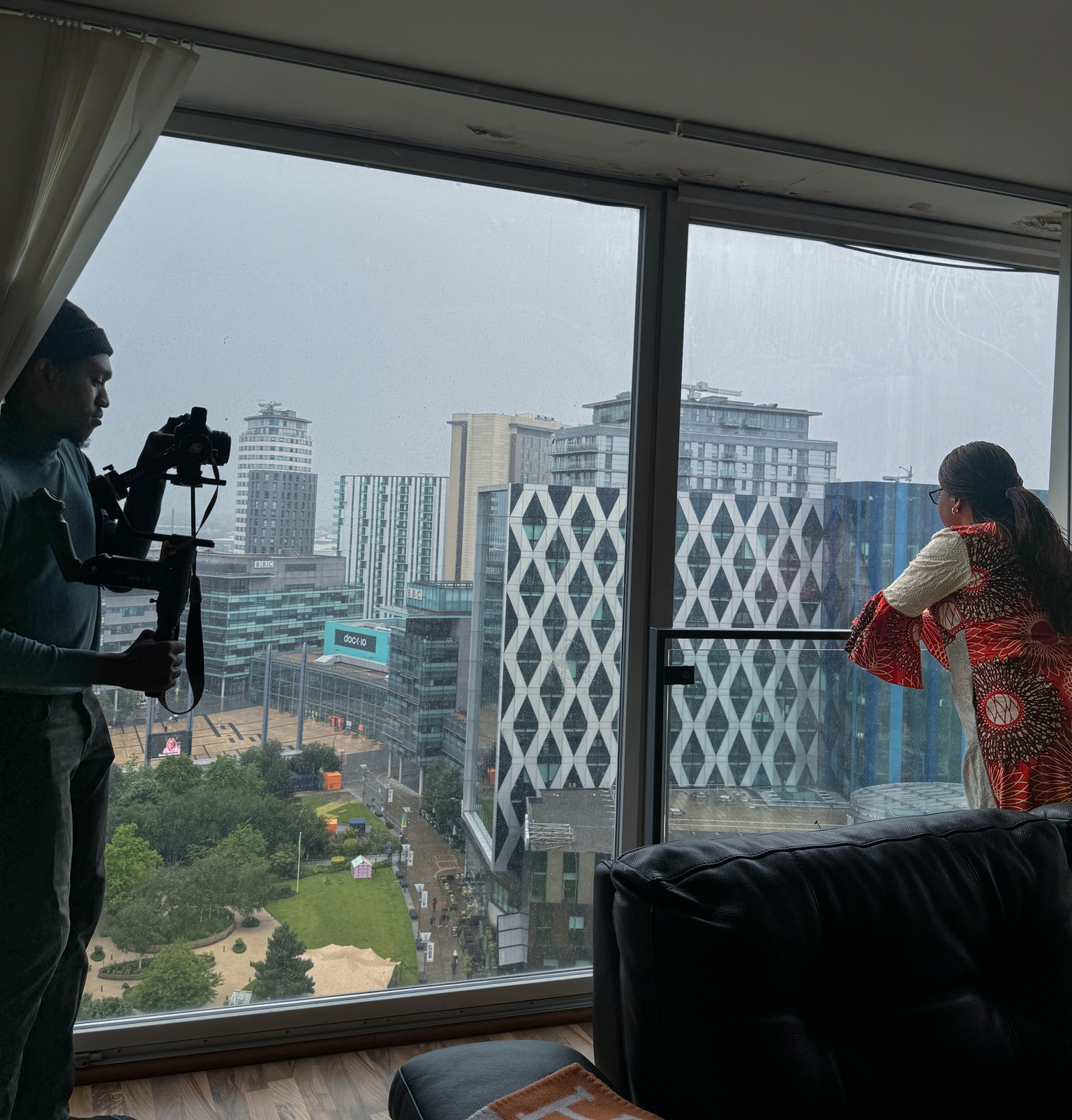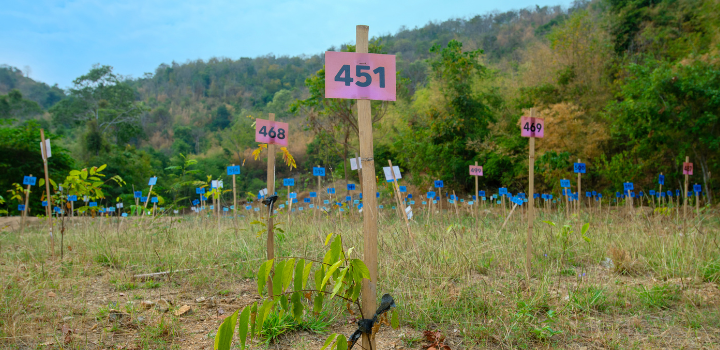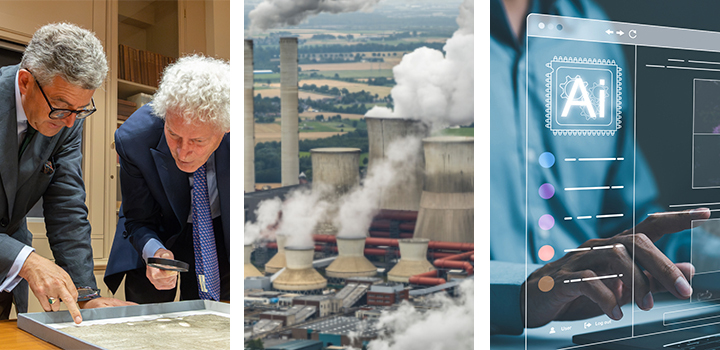Stop the Razor – a filmmaker’s fight for a future without FGM
By: Communications

Ayoola Jolayemi is an award-winning director, cinematographer, and photographer dedicated to driving change through storytelling. Since studying at UEA in 2022 for his MA degree in Media and Global Development, he has continued to pursue creativity and raise awareness of global issues.
Ayoola’s latest project focuses in on human rights issues and cultural practices, through his documentary on the harrowing practice of female genital mutilation (FGM), of which UNICEF reports more than 230 million girls worldwide have experienced.
Stop the Razor amplifies the voices of survivors like Betty Ajele, a Nigerian activist and survivor of FGM, whose lived experiences are central to raising awareness and advocating for change against the practice. “They cut to silence her,” says Ayoola. “This film lets her speak.”
Directed by Jolayemi and executively produced by Dr Bola Oyelakin-Ogungbadejo, the documentary recently achieved international acclaim, after receiving the ‘Best Documentary – International’ award at the Alternative Film Festival.
Within UEA’s School of Global Development, Ayoola also currently supports media and communications, in addition to teaching as a guest lecturer. His sessions focus on practical storytelling tools, such as filmmaking and editing, to help empower students to engage creatively with important topics.
In light of this recent award recognition, he shares a powerful reminder of the transformative potential of storytelling:
“When we speak up, we open doors. When we tell our stories, we shift the world.”
Ayoola, what inspired you to tell Betty’s story?
AJ: “I volunteer as a media specialist at a Community Interest Company (CIC) called the Change Agent Network CIC, which works to end FGM and support survivors. The network’s director, Dr Bola Oyelakin-Ogungbadejo, shared Betty’s story with me during a conversation, as she knew her personally and had been deeply moved by her journey.
“Betty was volunteering with the organisation and actively campaigning against FGM. We all felt that telling her story could be incredibly powerful, not only to raise awareness but to inspire change.
“As a filmmaker, I approach stories like this with a deep sense of responsibility. It's important to create a space that centres the voice and agency of the person sharing their story. I spend time building trust and ensuring that the person feels empowered throughout the process, from concept development to the final cut. This helps me to treat their truth with care, honesty, and respect.”
Betty chose not to remain anonymous for the documentary. How did you create a supportive space for her to share her story?
AJ: “From the first day we met, creating a safe and empowering environment for Betty was a shared priority for Dr Bola, myself, and members of the production team. We had ongoing conversations with her to ensure she was fully comfortable with how her story would be told, and she was involved in every step of the film’s creation.
“Consent was at the heart of this process, ensuring that Betty had control over every detail and was never pressured into sharing anything she wasn’t comfortable with. We also made sure she had access to emotional support throughout the process, with the CIC offering safeguarding resources where needed.
“By maintaining constant communication, prioritising her consent, and centring her voice and agency, we aimed to create a space where Betty felt not only safe but fully in control of how her story was shared with the world.”
 Images: Behind the scenes of filming for Stop the Razor with Ayoola
Images: Behind the scenes of filming for Stop the Razor with Ayoola
What impacts do you hope Stop the Razor will have on FGM?
AJ: “I hope this documentary will spark deeper conversations around it, not just as a human rights issue but as a critical part of the broader conversation on gender equality, cultural practices, and the empowerment of women. By sharing Betty’s story, we aim to amplify the voices of survivors and challenge the stigma that often surrounds the topic.
“My hope is that the documentary will encourage more people to engage with the issue, advocate for stronger protections, and support the work being done globally to end FGM.
“Additionally, I hope it opens space for people to reflect on how we can better support survivors in their journeys towards healing, and how we can all play a part in breaking the cycle of harmful practices. Ultimately, I want the documentary to be a call to action, inspiring change on both a local and global level.”
How has your time at UEA influenced you?
AJ: “My journey at UEA, first as a student, and then through roles such as social media management in DEV, my development work placement at WaterAid, and my current guest lecturing, has profoundly shaped my approach to filmmaking and storytelling.
“UEA taught me how to critically engage with the global issues I care about, blending media and development theory to create impactful, socially conscious content. Each step, whether it was creating content for DEV or collaborating on development projects at WaterAid, helped me refine my ability to use media as a tool for advocacy and change.
“Guest lecturing has also reinforced the importance of inclusive storytelling, where students are encouraged to consider whose voices are represented and how they can challenge dominant narratives. This combination of theory, practical experience, and teaching has helped me adopt a more holistic, ethical, and participatory approach to my work, ensuring that the stories I tell have a positive social impact.”
 Image: Ayoola filming with Betty Ajele for the documentary
Image: Ayoola filming with Betty Ajele for the documentary
What does this Alternative Film Festival award recognition mean to you, both personally and professionally?
AJ: “Winning the Best Documentary – International award at The Alternative Film Festival is both humbling and deeply meaningful to me.
“On a personal level, it’s a recognition of the hard work, dedication, and passion that I, along with the entire team, put into telling Betty’s story and advocating for change on such a critical issue. It’s validating to see that the effort to shed light on FGM and give a voice to survivors is being acknowledged and appreciated.
“Professionally, the recognition is a significant milestone in my career, as it underscores the importance of storytelling as a tool for social change. It gives me the confidence to continue pushing boundaries in my work, knowing that impactful storytelling has the power to influence conversations and inspire action.
“The award also opens up more opportunities to collaborate with like-minded individuals and organisations committed to making a difference through film.”
What advice would you give to others at UEA looking to tell powerful stories?
AJ: “My advice would be to approach storytelling with purpose, empathy and a commitment to ethical representation.
“First and foremost, it’s important to listen – really listen – to the people whose stories you are telling. Understand their perspectives, their needs and their desires for how their stories will be shared. In powerful storytelling, the voice of the subject should always be central.
“Additionally, use your platform as a tool for change. Filmmaking, social media and other media forms have immense potential to influence attitudes and spark action. But with that power comes responsibility. It’s essential to be aware of the broader context and the potential impact your work can have, both positive and negative.
“Lastly, embrace collaboration. Whether you’re working with a team or the community you’re representing, stories are often at their most impactful when created in partnership with others. Stay open to feedback and be willing to adapt as you learn through the process.”
Related Articles

Social justice should not be tokenistic but at the heart of global restoration efforts
Social justice must be at the heart of global restoration initiatives - and not “superficial” or “tokenistic” - if ecosystem degradation is to be addressed effectively, according to new research by the University of East Anglia (UEA).
Read more
2025 – a year in research
The past twelve months have seen UEA researchers break new ground on everything from Magna Carta to the mating habits of jaguars in the Amazon. Join us as we take a look back at just some of 2025’s incredible stories, discoveries and expert insights.
Read more
UEA’s grant and funding success – October 2025
Discover the latest research and funding grant successes happening within the University of East Anglia.
Read more